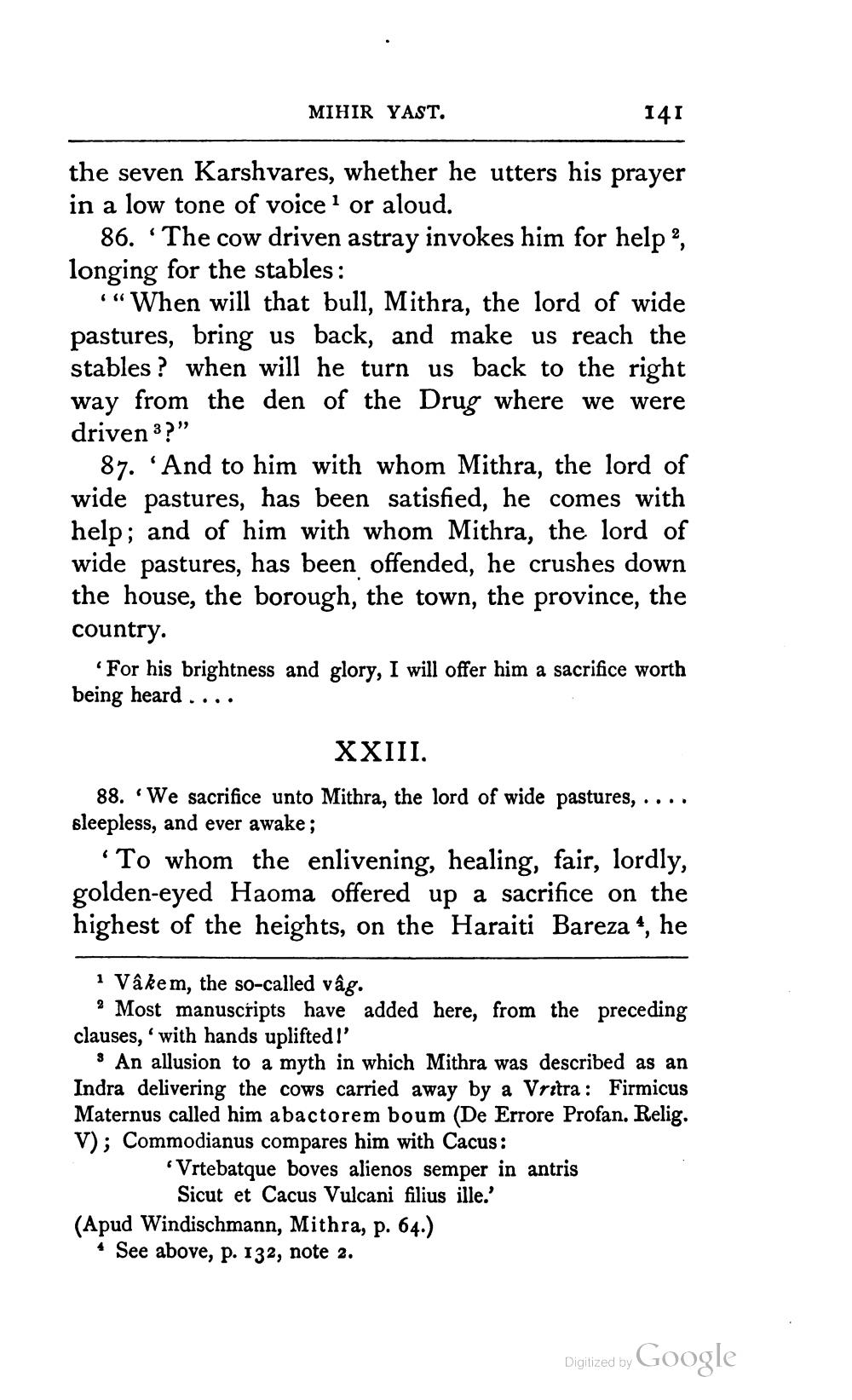________________
MIHIR YAST.
141
the seven Karshvares, whether he utters his prayer in a low tone of voice or aloud.
86. "The cow driven astray invokes him for help, longing for the stables:
«“When will that bull, Mithra, the lord of wide pastures, bring us back, and make us reach the stables ? when will he turn us back to the right way from the den of the Drug where we were driven 3?"
87. 'And to him with whom Mithra, the lord of wide pastures, has been satisfied, he comes with help; and of him with whom Mithra, the lord of wide pastures, has been offended, he crushes down the house, the borough, the town, the province, the country.
For his brightness and glory, I will offer him a sacrifice worth being heard ....
XXIII. 88. "We sacrifice unto Mithra, the lord of wide pastures, .... sleepless, and ever awake;
To whom the enlivening, healing, fair, lordly, golden-eyed Haoma offered up a sacrifice on the highest of the heights, on the Haraiti Bareza -, he
1 Vâkem, the so-called vâg.
Most manuscripts have added here, from the preceding clauses,' with hands uplifted!
8 An allusion to a myth in which Mithra was described as an Indra delivering the cows carried away by a Vritra: Firmicus Maternus called him abactorem boum (De Errore Profan. Relig. V); Commodianus compares him with Cacus:
Vrtebatque boves alienos semper in antris
Sicut et Cacus Vulcani filius ille.' (Apud Windischmann, Mithra, p. 64.)
* See above, p. 132, note 2.
Digitized by Google




